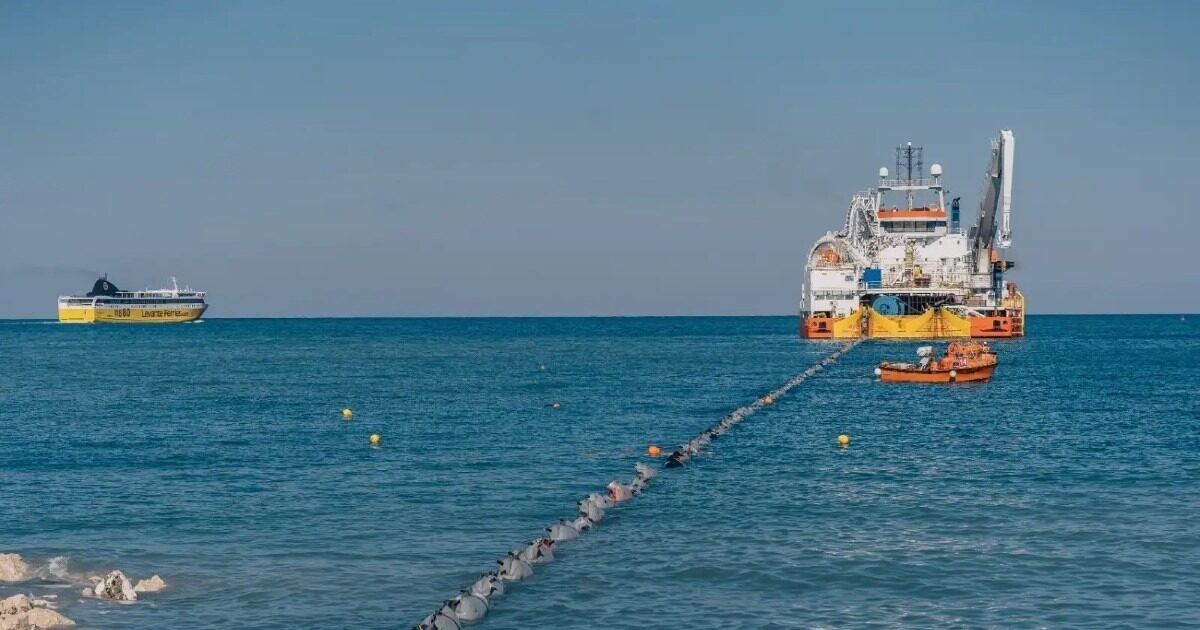Very close to the loss of a very important – and fully mature – energy project are now the governments of Greece and Cyprus, after yesterday’s (3.9.2025) negative developments. As the Great Sea Interconnector (GSI) has now entered the European Public Prosecutor’s Office, one realizes that the issue with the cable will time.
Now, there are a number of completely unknown variables:
The first question is exactly what the research of European authorities concerns, with the most likely scenario focusing on the first period of project development, when it was still called Euroasia Interconnector. Why it took so long to activate the prosecutor’s office and who initially moved the process is something we don’t know right now.
The second major question is the intentions of the Cypriot side, which says it does not consider the project viable. At the same time, it is reluctant to bear the cost of the interconnection it corresponds to under the transnational agreement with Greece. He cites two specific studies by international firms, which have shown that GSI is unprofitable.
But he has not published them, nor do we know what the companies that have prepared them are. Therefore, no view of what Nicosia claims on the financial part of the case can be expressed. This is a “black box”.
Common sense would dictate that if the Cypriots were concerned about the geopolitical risk and the threat of Turkey, then they would have to let Greece first go on with new investigations in Kaso and judge as a result. After all, the Greek government pledged to accompany the research ships with the Navy and appeared determined to do so.
But now Nicosia seems to not want the cable in general. As a result, she must fully open her papers and explain the reasons in detail.
On the occasion of the latest developments, the oldest rumor that wants specific energy interests in Cyprus to see the cable with Greece again.
On the website of the Cyprus Electricity Market Association (SAE), which represents private producers, we read the following about Great Sea Interconnector:
“SAE considers the implementation of electrical interconnections, both for energy security and political stability purposes. Nevertheless, it expresses serious concerns about electrical interconnection through Great Sea Interconnector, stressing that it is a project of uncertain sustainability. Technical difficulties that may make it not implemented.
The involvement of the Republic of Cyprus with government guarantees increases the fiscal risk, while allegations of reductions in electricity costs are deemed misleading, as domestic production and infrastructure could already secure cheaper energy. In addition, its implementation will lead to the degradation of local energy production and the energy independence of Cyprus from a project that involves visible geopolitical risks. “
The attitude of Athens
Let us now move on to the side of the Greek government. If Athens had decided to abandon the project, then the Cypriot statements in recent days would be the most convenient way of disengagement. The government would reject responsibilities in Nicosia and save much of the political costs.
Yesterday’s careful statements by Kostis Hatzidakis did not clarify what the real intentions were: on the one hand, the Vice President of the Government put Nicosia in front of her responsibilities and stated directly that she must clarify her attitude towards the work. At the same time, Mr. Hatzidakis expressed the steadfast will of Athens to proceed.
He himself, however, told SKAI that “if tomorrow morning we have a positive position on the part of Cyprus, we will move on.” Thus, the scenario does not eventually do the new investigations in Kaso, if Cyprus persists in the same line, and the whole issue to freeze for good.
